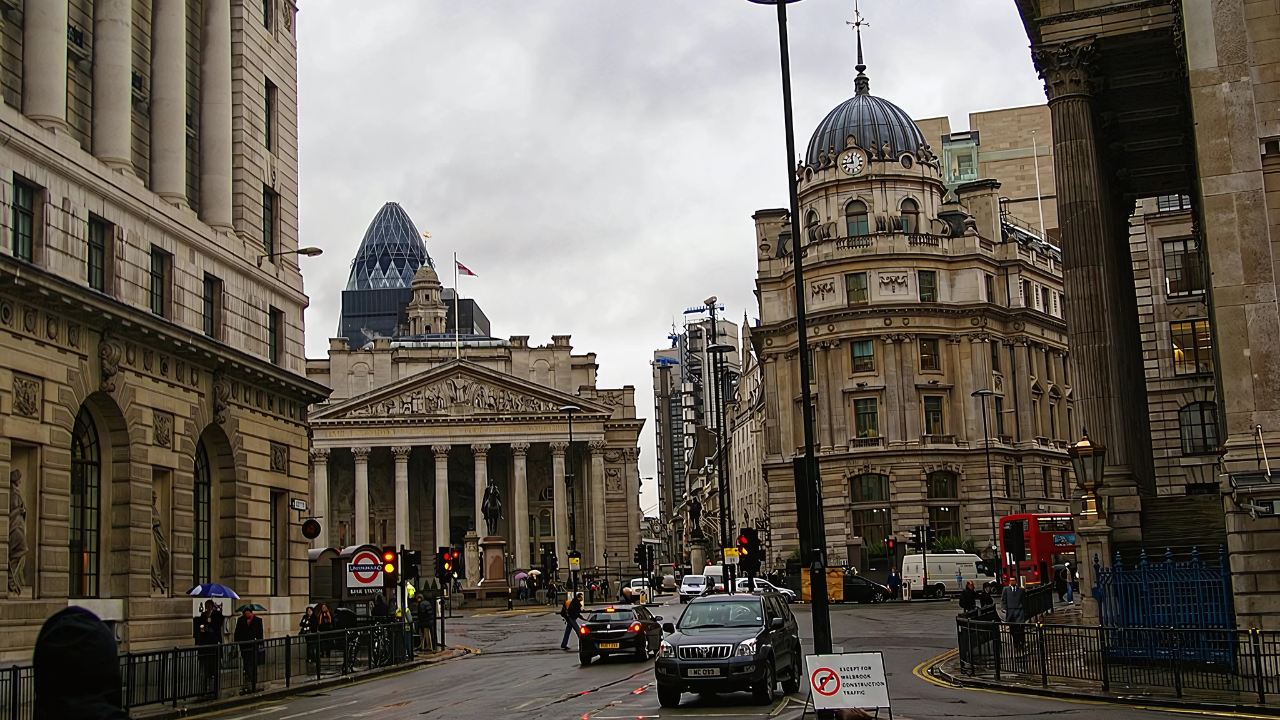
By: Swarnalata
Published on: Jun 19, 2025
The FTSE 100 index, along with European stocks, faced a decline on Thursday after the Bank of England (BoE) decided to leave interest rates unchanged at 4.25%. The news comes as traders weighed the latest economic data, including inflation levels in the UK, and geopolitical concerns, particularly the intensifying conflict in the Middle East. This blog post delves into the impact of these developments on the financial markets, the UK economy, and the BoE’s future policy decisions.
In a widely anticipated decision, the Bank of England opted to keep its key interest rate at 4.25%, despite a small dip in UK inflation. The UK inflation rate recently fell from 3.5% to 3.4% but still remains well above the BoE’s target of 2%. While inflation showed a slight decrease, the central bank’s cautious stance reflects concerns over persistent inflationary pressures.
The decision came as no surprise, given the uncertainty surrounding the economic outlook and the continuing geopolitical risks that could exacerbate inflation further. The Bank of England’s ability to control inflation has been a key focus of market participants, with many speculating on whether further rate hikes could be on the horizon.
One of the primary concerns facing the Bank of England is the escalation of the conflict in the Middle East, particularly between Israel and Iran. The tensions in the region have led to a spike in oil prices, adding additional pressure to the already volatile inflationary environment.
Zara Nokes, a global market analyst at JP Morgan Asset Management, highlighted the significant impact of rising oil prices on the Bank of England’s policy decision-making process. With oil prices rising as a result of geopolitical tensions, inflation could climb higher, making it harder for the BoE to ease rates without risking a surge in inflation.
Another crucial factor influencing the BoE’s decision is the state of the UK labour market. Recent data shows signs of cooling in the labour market, which, in theory, should help ease inflationary pressures. However, despite these signs, the Bank of England has remained cautious.
The BoE’s Monetary Policy Committee faces a difficult choice when it reconvenes in August. While the labour market cooling could signal that inflationary pressures may decrease in the future, the persistence of high inflation makes it difficult for the central bank to declare victory over inflation just yet.
As Nokes pointed out, the BoE must be cautious about easing rates too quickly in an uncertain geopolitical environment. If inflation remains sticky, further tightening may be needed, but the Bank must balance this against the risks of stifling economic growth.
The Bank of England’s decision was made in the context of similar moves by other central banks. On Wednesday, the US Federal Reserve also kept rates unchanged at 4.25%-4.50%, as was widely expected. The Federal Reserve's decision came as the updated Summary of Economic Projections (SEP) showed a shift towards a more hawkish stance.
Although the median projection still shows 50bps of rate cuts by the end of the year, seven Fed officials now expect no cuts this year, signaling greater uncertainty about the economic outlook. Fed chair Jerome Powell emphasized that while uncertainty had diminished slightly since the last meeting, it remained historically elevated.
The ongoing conflict in the Middle East has added an extra layer of complexity to the economic outlook. The rise in oil prices due to geopolitical tensions is something that central banks, including the BoE and the Federal Reserve, must carefully consider in their policy decisions.
While the Bank of England focuses on inflation targeting, it also must be mindful of global events that can impact markets. The decision to keep interest rates unchanged in the face of geopolitical instability reflects the central bank's cautious approach to an unpredictable global economy.
Looking ahead, the Bank of England faces a challenging road. The central bank must continue to monitor inflation, which could see further upward pressure from rising oil prices and the ongoing Middle East tensions. At the same time, it must keep an eye on the labour market and signs of economic slowdown that could warrant a policy shift.
The BoE's next meeting in August will likely be a critical one, as policymakers assess whether inflation is truly under control or whether further rate hikes are necessary. If inflation proves more persistent than expected, the BoE could be forced to take a more hawkish stance, despite the cooling labour market.
The decision by the Bank of England to hold interest rates at 4.25% has sent ripples through the financial markets, with the FTSE 100 and European stocks slipping in response. Geopolitical tensions in the Middle East, particularly the conflict between Israel and Iran, have added further complexity to the economic landscape. With inflation still above the BoE’s target and oil prices rising, the central bank’s next moves will be crucial in shaping the UK’s economic future. The global economic outlook, including decisions from the US Federal Reserve, will also play a key role in determining how central banks navigate these uncertain times.
Comments
No comments yet. Be the first to comment!
Leave a Comment